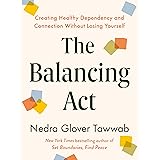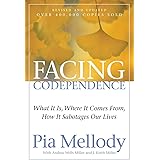The conversation above, featuring insights from Joe Rogan and an expert, touches upon a critical mental health challenge: gambling addiction. They highlight its peculiar and overwhelming nature, questioning the underlying pathways that compel individuals to risk everything. This discussion prompts a deeper dive into understanding why gambling can become such a powerful, destructive force in human lives.
Understanding the Grip of Gambling Addiction
Gambling addiction, often classified as a behavioral addiction, exerts an incredibly powerful pull on individuals. It’s not simply about losing money; it represents a profound mental health issue where the urge to gamble becomes uncontrollable. People who are “hooked on gambling” often find themselves caught in a relentless cycle, constantly “chasing” losses in a desperate attempt to win back what was lost, even as their lives unravel around them.
This compulsive behavior is deeply rooted, leading to severe consequences that extend far beyond financial ruin. The individual’s inability to stop, despite knowing the adverse effects, speaks to the immense power this addiction holds. It can devastate relationships, employment, and overall well-being, leaving a trail of significant emotional distress.
The Brain’s Hijacked Pathways: A Neurobiological Perspective
Joe Rogan pondered, “what pathway is being hijacked?” when observing someone unable to stop gambling. This question points to the complex neurobiology behind addictive behaviors. Our brains contain ancient reward pathways, primarily involving the neurotransmitter dopamine, which reinforce behaviors essential for survival, like eating and reproduction. When activated, these pathways produce feelings of pleasure and motivation, encouraging us to repeat the actions.
However, gambling, much like substance abuse, can powerfully stimulate this reward system. The anticipation of a win, even more than the win itself, can flood the brain with dopamine. This intense rush can rewire these pathways, associating gambling with profound pleasure and relief. Over time, the brain requires more and more stimulation to achieve the same level of satisfaction, leading to a compulsive pursuit of gambling experiences.
Studies have shown that individuals with gambling addiction often exhibit altered brain activity in areas responsible for reward processing and decision-making. For instance, research published in the journal Addiction Biology indicates that problem gamblers show diminished activity in brain regions associated with evaluating risks and rewards effectively, further fueling their compulsive behavior.
The Science of Risk: Learning from Pigeons
The expert in the video mentioned Dr. Zentall’s research, where pigeons could be “turned into a degenerate gambler.” This fascinating insight underscores how basic principles of conditioning can contribute to addictive behaviors, even in animals. In Zentall’s experiments, pigeons were trained to peck at a key for a reward, but the reward was intermittent and unpredictable. This “variable-ratio” reinforcement schedule is incredibly powerful for establishing persistent behavior.
Gambling operates on a similar principle. The unpredictable nature of wins—sometimes you win, sometimes you lose, but you never know when—creates a strong behavioral loop. The intermittent reinforcement makes the behavior highly resistant to extinction. The anticipation and occasional reward keep the individual engaged, perpetually hopeful for the next big win, much like a pigeon continuously pecking at a key.
This behavioral conditioning, combined with the neurochemical changes in the brain’s reward system, creates a formidable challenge for those struggling with gambling addiction. The brain learns to expect the dopamine surge, driving the compulsive need to gamble even when faced with overwhelming negative consequences.
Why People Take Such Risks: Beyond the Money
The inherent human desire to “risk literally all of their money” on a roll of dice or a spin of a wheel is perplexing from an outside perspective. Several psychological factors contribute to this intense risk-taking behavior in gambling addiction. One significant factor is the “near-miss” effect, where a close call feels like a win and can be almost as stimulating as an actual win, further fueling the desire to continue.
Cognitive biases also play a major role. Gamblers may develop an “illusion of control,” believing they can influence random outcomes, or they might suffer from “gambler’s fallacy,” thinking past results influence future ones. For example, after a string of losses, they might believe a win is “due.” These distorted thought patterns perpetuate the cycle, making it incredibly difficult to make rational decisions about stopping.
Moreover, for many, gambling serves as an escape from difficult emotions, stress, or boredom. The intense focus and adrenaline rush of gambling can provide a temporary distraction from personal problems, creating a vicious cycle where gambling becomes a coping mechanism, despite its destructive outcomes. The National Council on Problem Gambling reports that problem gamblers are significantly more likely to suffer from co-occurring mental health issues like depression, anxiety, and substance use disorders, highlighting the intertwined nature of these struggles.
The Devastating Impact of Problem Gambling
The impact of gambling addiction is profound and far-reaching, affecting not just the individual but their entire support system. Financial ruin is a common and immediate consequence, leading to debt, bankruptcy, and even criminal activity to fund the addiction. The average debt incurred by problem gamblers can range from tens of thousands to hundreds of thousands of dollars, according to various economic studies.
However, the mental health toll is equally severe. Individuals often experience intense guilt, shame, anxiety, and depression. The constant stress of hiding the addiction and dealing with its consequences can lead to significant emotional distress, and in severe cases, suicidal ideation. Relationships with family and friends often crumble under the weight of deceit, broken trust, and financial strain. It’s estimated that a significant portion, perhaps up to 20-30%, of individuals seeking help for gambling addiction report family problems as a direct result.
Societally, gambling addiction imposes substantial costs related to healthcare, legal issues, and lost productivity. Addressing this complex issue requires a multi-faceted approach, recognizing it as a serious mental health condition requiring professional intervention and support. For those struggling with gambling addiction, understanding these underlying mechanisms is often the first step toward seeking help and embarking on a path to recovery.
Breaking the Silence: Your Questions on Gambling Addiction
What is gambling addiction?
Gambling addiction is a behavioral addiction and a serious mental health issue where a person’s urge to gamble becomes uncontrollable. It’s not just about losing money, but a compulsive cycle of chasing losses despite severe consequences.
How does gambling affect a person’s brain?
Gambling powerfully stimulates the brain’s natural reward pathways, releasing dopamine and creating feelings of pleasure and motivation. Over time, these pathways can get rewired, making the brain crave more and more stimulation from gambling.
Why is it so hard for someone to stop gambling once they are addicted?
It’s difficult because the unpredictable nature of wins conditions the brain to keep gambling, much like how pigeons are trained. Additionally, psychological factors like feeling a ‘near-miss’ is like a win and distorted thinking contribute to the compulsive behavior.
What kind of problems can gambling addiction cause?
Gambling addiction can lead to severe financial ruin, including massive debt and bankruptcy. It also causes significant emotional distress, anxiety, depression, and can damage relationships with family and friends due to broken trust and financial strain.











